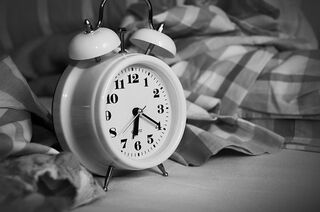Sleep
Giving Back the Time Taken From Us Last Spring
Another fall, another fall back to standard time.
Posted November 11, 2021 Reviewed by Vanessa Lancaster
Key points
- While daylight savings time persists, opposition grows.
- Sleep professionals conclude that changing the time twice a year does more harm than good.

Here we go again. All of that daylight we saved since last spring has just been returned to Mother Nature. Thankfully, the fall change is noft as difficult an adjustment as the spring when we sacrifice an hour of sleep each day – for what exactly?
Tell me again, why are we doing this? Maybe we should all have to explain it to a child, and if we can’t do that well, we should give up the whole idea.
Every year news articles abound in spring and fall about daylight savings time (DST). The momentum seems to be growing to do away with it. One headline said that 19 states have legislation at some stage to change the way it has been done for over a century. How did all this start anyway?
Evidently, we have the German Empire to blame for what more and more of us regard as an unnecessary annoyance. In an effort to save fuel by minimizing artificial lighting (gas lamps presumably), clocks were set an hour ahead on April 30, 1916. A few weeks later, the UK, France, and other countries did the same.
Two years later, on March 19, 1918, the United States adopted the change. But the federal legislation was repealed later that year. Germany surrendered on November 11, 1918, so the original justification was no longer relevant. FDR reestablished DST in 1942, calling it “War Time,” and it was discontinued in 1945 at the end of WW2.
I always thought that the rationale was primarily so that farmers had more late afternoon daylight hours to harvest crops, but now I realize that farmers likely get up early anyway, and the number of hours of daylight is the same regardless of how clocks are set.
In October 2020, The Sleep Research Society published a public education paper by Kimberly Honn and Hans Van Dongen, two experts in circadian biology. They stated that DST "has negative effects on alertness, mood, well-being, work and school performance, traffic safety, and health during those days." I wrote about DST at this time last year and recommended the article for detailed information about how the sleep research community views the issues surrounding DST.
Since then, several members of The Sleep Research Society have published a position paper in the Journal of Clinical Sleep Medicine arguing that changing the time twice a year did more harm than good (Rishi et al., 2020).
So if you have been feeling sleepy an hour before you usually do over the last few days and can’t stay awake for that late show you like to watch, don’t blame the sleep professionals. They are trying to do something.
Unfortunately, abolishing DST requires legislators’ action, and these days we can hardly get them to agree whether at any point it is day or night. Every topic seems to be weaponized by both political parties. Will changing be seen as too progressive by some of us and labeled the war on daylight savings time? After all, DST started during a war, so I would not be surprised at all!
References
Rishi, M. A., Ahmed, O., Barrantes Perez, J. H., Berneking, M., Dombrowsky, J., Flynn-Evans, E. E., ... & Gurubhagavatula, I. (2020). Daylight saving time: an American Academy of Sleep Medicine position statement. Journal of clinical sleep medicine, 16(10), 1781-1784.


